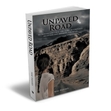Music, notes and real life
I don’t like spending too many hours by computer and reading every kind of emails, which most of them are not my tastes or are just garbage. Today, I decided to sign in to my email to clean up the inbox. It hold over three hundred unread emails. As I was checking and deleting one after another, I crossed to a very interesting video, which a friend of mine had sent. The title was “Music as a key to understanding reality”. The violist Bijan Khadem-Missagh, an Iranian musician with his violin in hand demonstrated how music and its notes could teach us the reality of life. I was so impressed with his lecture that I watched it not only once, but many times.
With his gentle voice, Bijan referred to Johan Sebastian Bach’s answer when Bach was asked what the music is. His answer was that the music was a language, a language for communication. Bijan continued to compare every human being to a music note. He believed and demonstrated with his violin how notes and vibration of waves, in music called “over tones” together could create a beautiful sound. One note alone by contrary would be nothing, but a string noise and terrible to hear. He maid his point that the “over tones” or quality like love, justice, friendship, honesty, peace, trueness, trust, and etc., which we all have and vibration of these tones would create a beautiful music.
It was the most beautiful comparison I have heard. Then, I thought why we can’t use so many good qualities we have and together change the life, as beautiful and harmonic as the tones on strings of the violin. What kind of world we would leave for our children. I am not talking about the global warming; I am talking about the humanity. Are we suitable enough to be a role model to our children? Look around to see what a disastrous we have made of the world. During the last ten years just greediness, wars and killing have been the outcome of our contribution to our world. Our generation is guilty and responsible. What can we do about it? How will the future look like? And will our kids condemn us? I need some answers and like to know what is wrong with us?
With his gentle voice, Bijan referred to Johan Sebastian Bach’s answer when Bach was asked what the music is. His answer was that the music was a language, a language for communication. Bijan continued to compare every human being to a music note. He believed and demonstrated with his violin how notes and vibration of waves, in music called “over tones” together could create a beautiful sound. One note alone by contrary would be nothing, but a string noise and terrible to hear. He maid his point that the “over tones” or quality like love, justice, friendship, honesty, peace, trueness, trust, and etc., which we all have and vibration of these tones would create a beautiful music.
It was the most beautiful comparison I have heard. Then, I thought why we can’t use so many good qualities we have and together change the life, as beautiful and harmonic as the tones on strings of the violin. What kind of world we would leave for our children. I am not talking about the global warming; I am talking about the humanity. Are we suitable enough to be a role model to our children? Look around to see what a disastrous we have made of the world. During the last ten years just greediness, wars and killing have been the outcome of our contribution to our world. Our generation is guilty and responsible. What can we do about it? How will the future look like? And will our kids condemn us? I need some answers and like to know what is wrong with us?
Published on December 18, 2011 21:29
No comments have been added yet.
Unpaved Road
Niki is an Iranian woman living in Tehran. She experiences the hardship of life before, during, and after the Islamic Revolution in 1979.
Viewed as a rebel by conventional society, Niki is forced by a Niki is an Iranian woman living in Tehran. She experiences the hardship of life before, during, and after the Islamic Revolution in 1979.
Viewed as a rebel by conventional society, Niki is forced by a combination of cultural boundaries and Islamic restrictions to make radical decisions that take her life on an unbelievably rocky road.
When she falls for a wanted journalist, Niki decides to go against the system and her protective family and gets involved in a series of unexpected, dangerous incidents. After she follows her heart and marries the man she loves, Niki is forced to flee the country with him to survive.
...more
Viewed as a rebel by conventional society, Niki is forced by a Niki is an Iranian woman living in Tehran. She experiences the hardship of life before, during, and after the Islamic Revolution in 1979.
Viewed as a rebel by conventional society, Niki is forced by a combination of cultural boundaries and Islamic restrictions to make radical decisions that take her life on an unbelievably rocky road.
When she falls for a wanted journalist, Niki decides to go against the system and her protective family and gets involved in a series of unexpected, dangerous incidents. After she follows her heart and marries the man she loves, Niki is forced to flee the country with him to survive.
...more
- Niki Bahara's profile
- 3 followers



